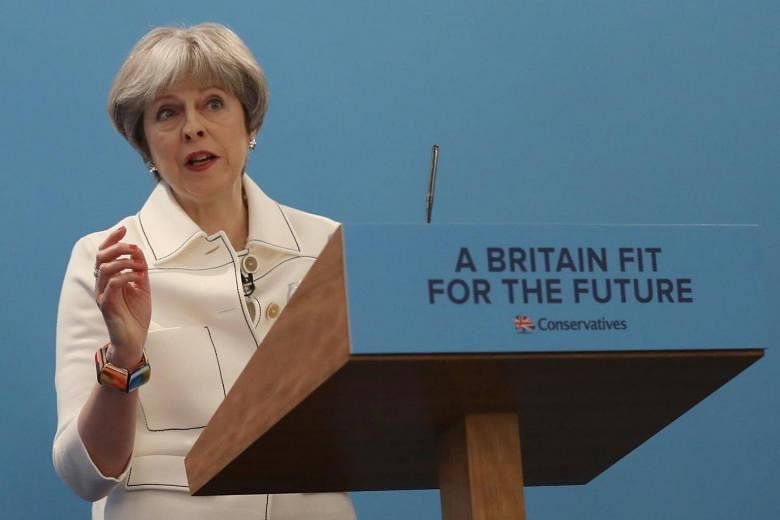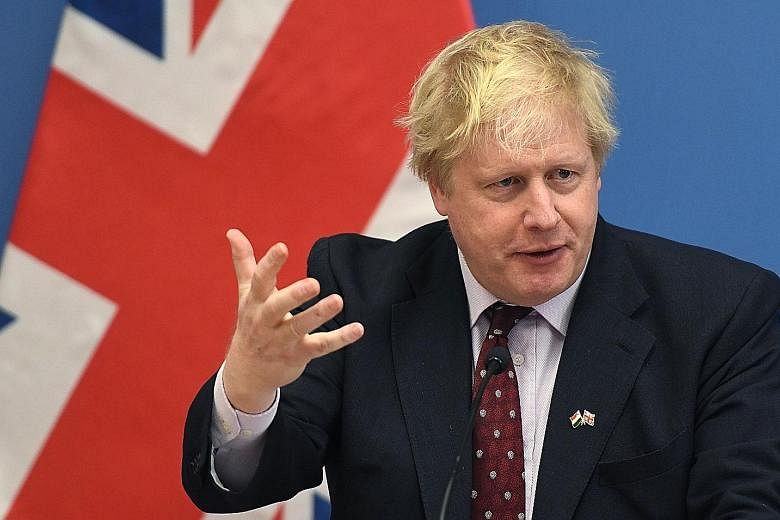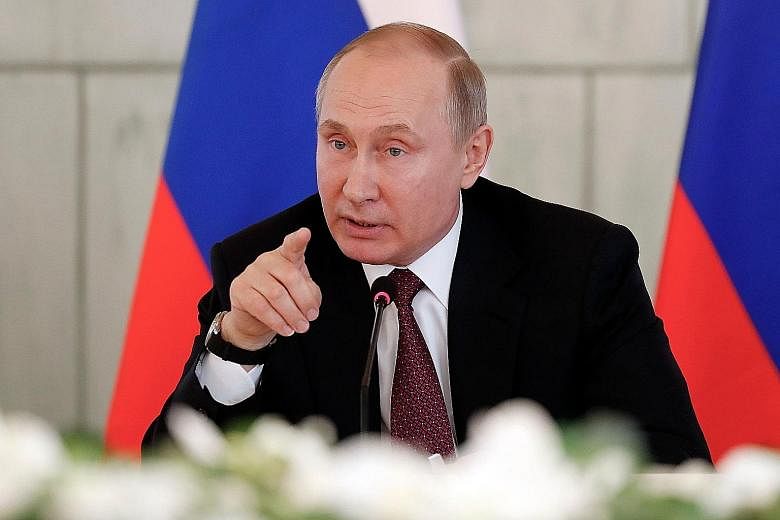LONDON/MOSCOW • Prime Minister Theresa May said the United Kingdom may take further action against Russia over the nerve agent poisoning of a former spy and his daughter after Moscow ordered 23 British diplomats to leave the country in a tit-for-tat retaliation.
"We anticipated a response of this kind and we will consider our next steps in the coming days, alongside our allies and partners," Mrs May said at a Conservative Party forum in London yesterday.
Russia also ordered the British consulate in St Petersburg to close and told the British Council to end its work in the country.
The Russian Foreign Ministry said it was giving the 23 British diplomats one week to leave the country.
The move, which was tougher than expected, followed Britain's decision on Wednesday to expel 23 Russian diplomats over the attack in the English city of Salisbury which left former Russian spy Sergei Skripal, 66, and his daughter Yulia, 33, critically ill in hospital.
"Russia's response doesn't change the facts of the matter - the attempted assassination of two people on British soil, for which there is no alternative conclusion other than that the Russian state was culpable," Mrs May said.
She warned that Britain "will never tolerate a threat to the life of British citizens and others on British soil from the Russian government".
However, she said Britain had "no disagreement with the Russian people".
Britain's National Security Council will meet in the next few days to "consider next steps", the Foreign and Commonwealth Office in London said in a statement yesterday.
"We continue to believe it is not in our national interest to break off all dialogue between our countries, but the onus remains on the Russian state to account for their actions," it said.
Moscow announced the measures on the eve of a presidential election which incumbent Vladimir Putin should comfortably win.
Mr Putin has cast his country as a fortress besieged by hostile Western powers with him as its defender, and state media is likely to portray the anti-British move in that context.
The Foreign Ministry said Moscow's measures were a response to what it called Britain's "provocative actions and groundless accusations". It warned London it stood ready to take further measures in the event of more "unfriendly steps".
The Russian Foreign Ministry summoned the British ambassador, Mr Laurie Bristow, to a meeting yesterday morning in central Moscow at its Stalin-era headquarters, during which he was informed of the retaliatory measures.
Mr Bristow told reporters afterwards that Britain had expelled the Russian diplomats only after Moscow had failed to explain how the nerve toxin had got to Salisbury.
Britain's Foreign Ministry said it had anticipated Russia's response and its priority now is looking after its staff in Russia and assisting those who will return home.
The closure of the British Council's Moscow office will sever cultural ties, while that of the consulate-general in St Petersburg will end Britain's diplomatic presence in Russia's second-largest city.
Russian news agencies cited politicians in Russia's Upper House of Parliament as welcoming the move to close the British Council, alleging it had been used as a cover by British spies.
The British Council said it was profoundly disappointed by Russia's decision and remained committed to developing long-term people-to-people links with Russia despite the closure.
Russia has complained that Britain has failed to provide any evidence of its involvement in the Salisbury attack and has said it is shocked and bemused by the allegations.
Britain has escalated a war of words with Russia over the incident in recent days.
On Friday, British Foreign Secretary Boris Johnson said it was overwhelmingly likely that Mr Putin himself had made the decision to use a military-grade nerve toxin to strike down former spy Skripal.
Britain, the United States, Germany and France have jointly called on Russia to explain the attack, while US President Donald Trump has said it looks as if the Russians were behind it.
Moscow has said it is open to cooperation with London, but has refused Britain's demands to explain how Novichok, a nerve agent developed by the Soviet military, was used against the Skripals.
NYTIMES, REUTERS, AGENCE FRANCE-PRESSE



